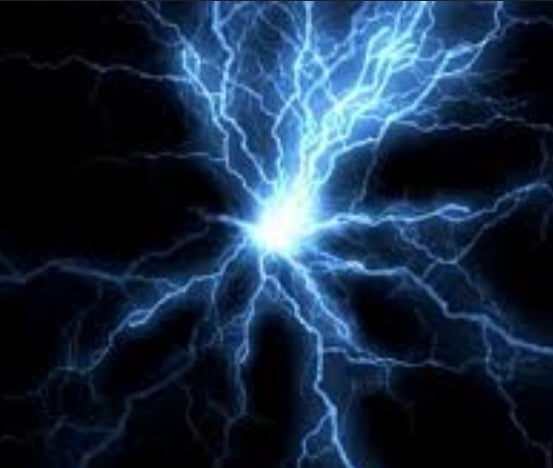Biden Administration Is Said to Slow Early Stage of Shift to Electric Cars::The change to planned rules was an election-year concession to labor unions and auto executives, according to people familiar with the plan.
Every damn time, ‘we just need a few more years, don’t force us yet though, we’re not ready…’ this forever planning stage is going to kill the planet before anyone is ready to act.
I’m sorry to be the bearer of bad news; we are not going to solve the planet with rampant consumerism
Given I’m not sure if you mean ‘the problem of rampant consumerism’ or ‘not solving the problem via rampent consumerism’ I’ll put up thoughts on either front.
On the first, a sizable part of that could be reduced by returning to a ‘buy it for life’ mindset in our society. I always like to use an example of Grandma’s kitchen table. Some people have the nice oak piece that’s been passed through a few generations, scuffed and stained maybe, but as solid as ever. Many now though obtain the cheapest particle-board garbage they can from the local Walmart and see it as normal to have to replace it after a couple years. That disposable lifestyle doesn’t help anyone other than the retailers and producers of cheap useless junk, nobody is going to be looking to build family memories at some glorified card table.
On the second, no, people buying for the sake of buying isn’t going to solve things, but at least we can make the choices available less destructive overall. In some cases 1000 small actions are just what’s needed of no one thing can do it all.
Yes to both and more.
We need laws to change the consumption and waste and subsequent damage problems. No more stuff because it’s built poorly, intentionally so you buy more stuff to only end up in the water, air, & ground.
Laws that reward repairs let alone legalise it. No more replacements.
Laws that change the grids energy production.
Laws that make corporations liable for damages on a global scale so the costs outweigh the risk and harm can be unwound with the cost recovered.
We dont need more stuff. We need EVs just to replace the current broken stuff and even then only if it cant be fixed (that means using carbon reduction like catalytic converters on steroids). Its to consider all the carbon creation chains for stuff. From digging it up, to its waste, and recycling.
It’ll be the states driving this forward again unfortunately.
I’m still waiting for my hoverboard and jetpack.
How about tell the dealerships and auto execs to fuck off? Up the subsidy that has not changed in 10 years.
“Labor unions” are the workers, so it’s everyone.
I’m not in the know on this. How might one play devil’s advocate? Aren’t they still considered to be too expensive for most people? The electric grid ready?
They are too expensive. But only because auto manufacturers are only making midsized and larger suvs or luxury cars. The average price of an EV has dropped over 50% in China since 2015. That would have been tough for us to match, mostly because of batteries, but we could have made much more progress than we have.
The electric grid isn’t nearly as unprepared as people say. Sure, we need to build out more charging stations, but the grid as a whole far exceeds current needs. In fact, nationwide electrical usage is actually trending down in the US because of efficiency gains. Better building codes, heat pumps, LED lighting, if it uses electricity newer stuff is more efficient. If we had sold 8 times as many EVs in 2023 than we did, electricity usage would have stayed about flat.
Here’s the story as I understand it. US automakers want to make expensive premium cars because those sell for high margins. The big breakthrough in the EV market over the past few years has been China EV makers figuring out how to make cheap and “good-enough” EVs, which are catching on in many places across the world. This is clearly the direction in which the market has to move (whether via Chinese or non-Chinese automakers) to spur mass EV adoption. In the US, however, the established automakers can rely on protectionism to block imports, this keeping the US market limited to big expensive cars that remain using ICEs.
It’s really just a matter of time till Chinese manufacturers set up in Mexico and the US will have to accept Chinese EVs because of NAFTA. The US also has lots of range anxiety about EVs that I don’t see as much in other markets. Being 120v and sprawling with limited government willingness to build infrastructure, with no requirements for rentals to add chargers makes a perfect storm for that fear.
They just announced that’s the plan actually
https://www.reuters.com/business/autos-transportation/chinas-byd-plans-new-electric-vehicle-plant-mexico-says-nikkei-2024-02-13/Last month, Tesla’s chief executive predicted that Chinese automakers will “demolish” global rivals without trade barriers.
it sounds like maybe they should, idk? work on making their own garbage cheaper then? that soley sounds like a competition problem not a consumer problem. As long as the cars meet US safety standards for manufactoror I embrace the competition
Billionaires love laissez-faire capitalism until it comes to bite them in the ass
The geopolitical calculus here is about manufacturing.
If China owns EV production lines, that gives them the drone advantage in the next war, as the Li-ion battery is the hard thing to make in a drone.
If USA has EV lines, even if it’s more expensive, we have the resources to make drones as well. (Or Li-ion batteries in other useful weapons).
Ceeding the military advantage to the Chinese for some cheap consumer goods is a bad tradeoff, especially as China is building a Navy to fight us in Taiwan.
Li-ion cells, computers, solar panels… all of these are american inventions that capitalist entities moved to China to maximize profits.
Japan did it. Korea did it. China is doing it.
You sound informed, more so than I. The heat pump thing confuses me, and I’ve seen it a lot lately.
I was under the impression that the vast majority of homes were using a heat pump system. Seems like a no-brainer? Is this not so?
EDIT: My HVAC is labelled a “heat pump” and no one around here had natural gas.
No.
Typical gas / coal plants are ~40% efficient. That means that if you do natural gas -> electricity -> heat pump, you only have 40% of the energy available to you. Yes, Heat-pumps then multiply that 40% energy out into “energy movement” rather than heating, but its a huge efficiency break.
If you instead run a pipe from the central source of natural gas and then burn the natural gas inside of a home, you have something like 95% efficiency (5% lost in the chimney).
Its only in the most recent decades have heat pumps actually become more efficient than burning natural gas inside of homes, because you have to factor the inefficiency of the power plant in your conversion. So today we’re finally in a position where modern, advanced, efficient heat pumps are worthwhile. But go back just 20 years ago and the math still pointed towards burning fuel inside of our homes as the most efficient solution.
It’s technically a heat pump but it only cools and can’t switch to heating the space. It’s a fucked up way the American HVAC system has done things for decades.
A increasing percentage of new construction gets heat pumps. Some replacement HVAC units make the switch, but there is still a large portion of people who won’t because of misinformation and/or stubbornness.
But, unfortunately, most existing residential systems do not use heat pumps, under 20% in the US I believe.
Nope. Burning gas and direct electric heat of some sort are still the most prevalent forms of heating in the US, and often have separate cooling systems.
New building almost all use heat pumps because they are a no brainer, but a house built 60yr before the technology existed may still be using a very old heat source. Many people do not have the 20k+ to retrofit their current home with heat pump technology even if it can save hundreds/month on their power/gas bill,so here we are.
On the plus side, it is one of the lowest hanging fruits to reduce your bills long term, along with sealing drafts, insulation and replacing your water heater, so many people who have the means are opting to do all of the above.
As a renter, I have no way to charge an electric car nightly. The availability of charging infrastructure outside of private homes will be more and more of an issue, unless battery tech significantly improves to be at parity with gas (e.g. I spend 10 minutes at a public charger as if I were filling a gas car).
The electric grid will be ready when it needs to be ready. Power companies aren’t going to just leave EVs on the table, even if they have to beg for money to upgrade.
There’s a post around here somewhere about a Chinese (BYD) EV for $15,000. I didn’t look at it, but that’s going to be entry level with few bells/whistles. Still, that’s cheaper than any US ICE vehicle I know of.
The electric grid will be ready when it needs to be ready
Indeed. If the grid could not expand and would be overloaded, it works also be impossible to add more houses, offices or businesses. But it’s no problem building those and connecting them to the grid, but EV would blow every fuse.
With how Cheap solar energy and battery storage has been getting, as far as I’m concerned there’s no reason that major developed countries can’t start programs to install cheap solar panels on willing peoples yards/roofs/whatever, along with a battery storage container/wall to offset the strain of an EV
If the only thing standing in the way of something is “money”, then it’s a problem that humans are intentionally KEEPING a problem.
Solar/battery is not cheaper than natural-gas peaker plants yet, even today with all the cheapest Chinese panels with Chinese battery packs.
And natural gas home-heating is comparable to a natural-gas peaker feeding a heat pump in overall emissions. (!!!), because capturing near 100% of the heating energy from natural gas is easier than turning natural gas to heat, turning heat into electricity, and then running electrical losses to a home.
These complaints about EVs being too expensive are way out of date, now that China is pumping out hordes of cheap EVs that consumers like.
Even if the US doesn’t want to let in Chinese auto imports, the question remains: why are Chinese automakers able to bring down prices, but not US automakers? You can point to Chinese government subsidies, but the US also does industrial policy these days. One of Biden’s favourite talking points is how much money his government is putting into supporting US green manufacturing through the IRA.
why are Chinese automakers able to bring down prices
Because their economy is entering a deflationary spiral built off of 25%+ youth unemployment.
Yes, unemployment lowers labor costs severely. That’s… not a good thing or a strategy we’d want to replicate.
The other thing the Chinese do:
-
Take over swaths of Africa to obtain cheap rare-earth metals. Use even cheaper African labor to extract Cobalt and other metals.
-
Ignore environmental regulations. Lithium is obtained by pouring sulfuric acid into mountains, and then draining the acid out the bottom which now contains Lithium. Its simply a very destructive process full of possible issues where the acid will contaminate the natural environment. China doesn’t give a care.
-
Have huge amounts of unemployment to drive down labor costs lower and lower.
-
Create an export-driven economy, artificially deflating the Yuan to lower your currency. Yes, this lowers costs. But it also makes it harder to import goods.
There’s a few things we should learn from the Chinese. They have invented incredibly efficient electronic lines in Shenzhen for example. But the bulk of Chinese policies that cause a decline in prices are… horrific. We should never do what the Chinese do on a grand policy scale.
Import-driven vs Export-driven economies have naturally different tradeoffs. Export-driven economies have lower costs but difficulty buying foreign goods. Import-driven economies have higher costs but easier time buying whatever we want from around the world. The most important question: is there a market out there in the world where someone is willing to buy our stuff? I… don’t think so. So the only manufacturing we need in the USA is what we can’t buy from elsewhere… or what we chose to make here (like cars, weapons, and some semiconductors).
-
-
Too expensive
-
Charging infrastructure is terrible for road-trips. Many families can only afford 2 or 3 cars at best, and being forced into a 1-hour wait every 250 miles even in the best case is terrible.
-
Terrible trailer performance. EVs “secret” is hyper-efficiency with lightweight loads like typical driving. Its a good thing if our daily drive were replaced with EV. However, the range drops dramatically more than ICE/Diesel when under load: mountain / hill territory, drag from trailers, and rolling-resistance from higher weights all worsen EVs. Meanwhile, ICE actually increases in efficiency in these high-load circumstances. Trailers, Trucks, RVs will likely be ICE or at most Hybrid for the foreseeable future.
-
Terrible hotel infrastructure. Again for road-trips, but most vacation spots (beach houses, mountain lodges, hunting lodges, vacations at lakes, ski resorts etc. etc.) do NOT have enough chargers. So you can’t even charge at night when you get there.
EVs are perfect for the daily drive, even on 110V outlets.
As long as you have a habit to plug in every night, even a 110V outlet provides like 40mi+ of range on a typical EV sedan. In practice, this means that every day you’re leaving the house with a full charge.
If you need more range than 40mi daily, you’ll have to upgrade to an L2 charger at home (220V outlet). These beefier chargers can provide over 120mi of range every night for the typical EV.
So in practice, an EV in these circumstances acts like a car that you never need to go to a gas station. Because your home garage / home-charger is a fuel-station.
-
Practically, the biggest obstacle to overcoming EV suppression is Tesla. They are mainly profitable through sales of carbon credits via various emissions offset schemes, which they sell to other manufacturers such that they can show required carbon offsets by just paying some money. A whole lot easier than upending their business model to actually produce EV’s, and creates a positive feedback loop where Tesla retains position as only significant EV game in town. The EV development happening right now is targeting China, not the US.
Too expensive, not enough charging stations, and potential grid issues. I knew these ICE bans were unlikely to take effect as nobody seems in a hurry to build out the infrastructure needed for massive adoption.
They will continue to not build infrastructure and in five years we’ll see this exact headline again. Self fulfilling excuses.
P U B L I C T R A N S P O R T A T I O N
This is the best summary I could come up with:
In a concession to automakers and labor unions, the Biden administration intends to relax elements of one of its most ambitious strategies to combat climate change, limits on tailpipe emissions that are designed to get Americans to switch from gas-powered cars to electric vehicles, according to three people familiar with the plan.
Sensing an opening, former President Donald J. Trump, the Republican front-runner, has seized on electric cars, falsely warning the public that they “don’t work” and telling autoworkers that Mr. Biden’s policies are “lunacy” that he would extinguish on “the first day” of his return to the White House.
But he said in an interview that Mr. Biden’s climate policies, combined with record federal investment in renewable energy, would still help to reach the president’s goal of cutting the country’s greenhouse gas emissions in half by 2030.
Still, experts say it’s uncertain whether Mr. Biden can meet his twin goals of cutting the country’s greenhouse gas emissions in half by 2030 and eliminating them by 2050, a target that scientists say all nations must achieve to avoid the most catastrophic impacts of climate change.
In public comments it filed regarding the proposed rule, the United Auto Workers pressed the Biden administration to relax the compliance timeline so that it “increases stringency more gradually, and occurs over a greater period of time.” Union leaders repeated that request in discussions with senior White House officials, including Mr. Zaidi, over the past six months.
Last fall, when the union went on strike against Ford, General Motors and Stellantis, in part over fears about the industry’s transition to electric vehicles, Mr. Biden sought to assuage their concerns and became the first president to stand with workers on the picket line.
The original article contains 1,695 words, the summary contains 287 words. Saved 83%. I’m a bot and I’m open source!
Corporate Lobby go BRRRRRRRRRRR. also we need to over build charge stations to the point that some don’t get used because there are so many.
Ford, GM, and Chrysler: “not until we get guaranteed profits”
You know there is a solution to this stalling untill companies decide they are ready…
deleted by creator
I don’t think I ever want an EV as a daily driver but I’d be down for a sport bike or dirt bike. Sustainable Battery disposal/recycling and figuring out some kind of trade in system for the 15k-20k lifespan of battery is something I’d like to see. There isn’t much of a resale market value for these EVs that is comparable to ICE vehicles either.
Not judging, just genuinely curious, why do you not want an EV as a daily driver?
It comes down to a couple different things… First, if something is wrong with it I have no clue how to fix it or where I would take it to get fixed. Second, I’m not really in the market for anything over 10k. Thirdly (I said a couple I know), I’m not sold that all the bugs have been worked out and the area around me doesn’t really have a lot of charging stations. It has always felt like a novelty or something a well off person would get to showcase their progressiveness lol
This is actually one of the reasons why I push PHEV right now.
Note that PHEV has roughly 1/5th to 1/10th the battery size of a full EV. While every PHEV is different (do your research), the Prius Prime 2024 is perhaps the most practical. The new model has ~40ish miles of all electric range, and a button that can put you in 100% EV mode even at highway driving (at severe costs to your acceleration however: 0-60 in 11+ seconds in pure EV mode, while 6.5 seconds in EV+ICE mode). Still, the “pure EV” mode works on the Prius Prime, as crappy an experience as it is. This isn’t true for all cars (ex: Honda Accord 2014 PHEV switches to 100% ICE on highway driving).
In any case, the Prius Prime proves that a 13.6kW-hr battery pack is sufficient to cover a daily commute up to 44mi (EPA rating all-electric range). No need to buy a 5x larger pack like a Tesla (78kW-hr) or a 18x larger pack like a Hummer EV (260+ Kw-hr).
All PHEVs have an effective “generator” that converts gasoline into electric charge for your battery pack, and operates at far greater efficiencies than a regular car (gasoline -> motion is less consistent than gasoline -> tuned-generator -> electricity). Furthermore, most PHEVs (though not all) rely upon Atkinson cycle, meaning the engine is more efficient to begin with. (less fuel is injected per cycle, losing low-end torque. But the low-end torque is supplemented with EV engines so its a fine tradeoff for far greater efficiencies). So even in 100% gasoline mode, a PHEV offers substantial emissions savings off of a regular car.
Ex: Most cars waste their energy at idle. PHEVs instead run the generator to charge up the battery pack, so that your car has “effective work to do” rather than wasting fuel at a red-light. When the batteries are full, PHEVs and Hybrids can shutoff the engine entirely at each Red-light (0rpm electric engines are powerful enough to start the car / accelerate inside a city without any ICE assistance), so all the idle-fuel waste of a traditional ICE in stop-and-go traffic is eliminated. Etc. etc. etc.

I agree with you that PHEV is the sweet spot for some people like me. I go on road trips multiple times a year and until I can charge up in 5-10 minutes, I don’t see full EV as an option for my family. Also the lifespan of the batteries is a concern. You can have maintenance done on an engine to make it last as long as you want but batteries just need to be replaced at the end of their life. Eventually you reach the point where the battery replacement cost exceeds the cars value.
Eventually you reach the point where the battery replacement cost exceeds the cars value.
Yes. Fortunately, the cost of this is predictable.(Capacity of the true battery x durability) / kwh-per-mile == miles of durability.
Different batteries have different durabilities: anywhere from 800 cycles to 3500 cycles is a reasonable guess.
Wth the new crop of 3000-cycle LiFePO4 cells at lower costs, the estimated cost per mile of electric driving is reasonable today IMO. But run your calculations and make your own decision. Different vehicles have larger true battery sizes than advertised as well, so finding the 'True Battery Capacity’s is harder than expected, but assume a 10% bonus or so if you don’t know
Especially run this math on solar battery systems, where it’s obviously not worth it to me at least. But electric cars are competing vs more expensive gasoline prices, so it’s actually a reasonable cost in this more expensive use case.
Unions don’t like them because it means they’ll lose jobs as well… I’ve been told that they need 1 person on the line to build an EV, and like 7 people to build ICE.













